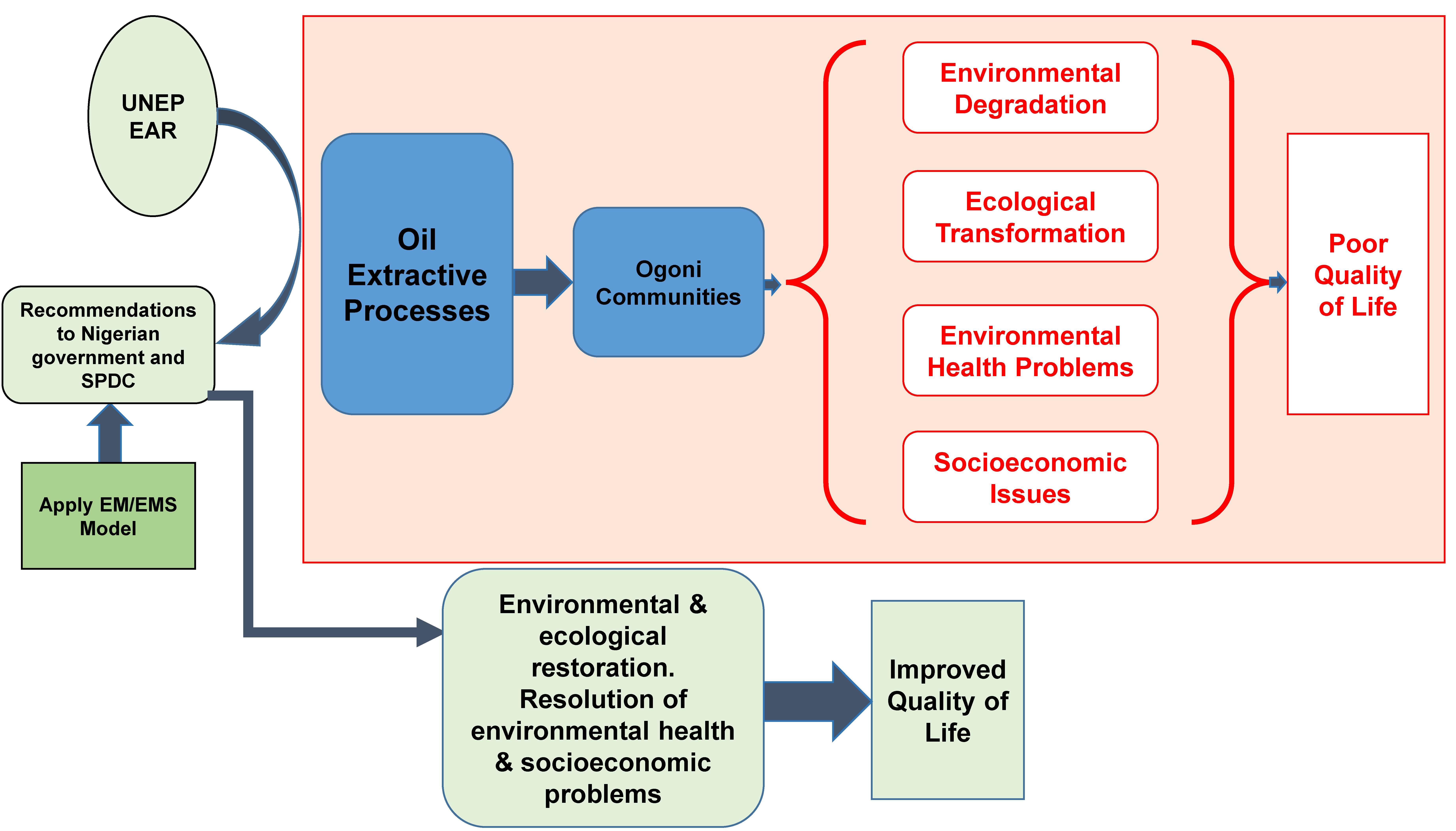In August 4 2011, United Nations Environmental Program (UNEP) submitted an unprecedented, scientific, groundbreaking Environmental Assessment Report (EAR) of Ogoniland, to the Nigerian government. This was the outcome of a 14–month intensive evaluation of the extent of pollution. It was intended that UNEP’s recommendations would be implemented to restore the devastated environment, on the one hand, and on the other, counteract the numerous environmental health issues that have for decades, plagued Ogoniland. However, five years post EAR, and, despite the seriousness of the situation, no significant resolution has occurred, both on the part of the government, and on the part of Shell Petroleum Development Company (SPDC) or Shell. To date, millions of Niger Delta residents, particularly those living in the oil-bearing communities, continue to suffer severe consequences. Although, the assessment was conducted in Ogoniland, other communities in the Niger Delta are also affected. This article explores prevailing issues, using Ogoniland (a microcosm of the Niger Delta) as an example. A multidisciplinary approach for sustainable mitigation of environmental health risks in the Niger Delta is paramount, and Environmental Management tools offer valuable strategies. Adopting UNEP’s recommendations for addressing environmental health problems requires implementing the Environmental Management/Environmental Management System (EM/EMS) model.

